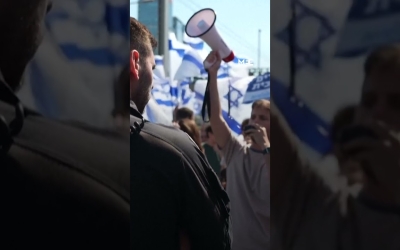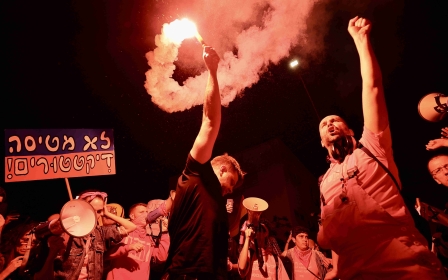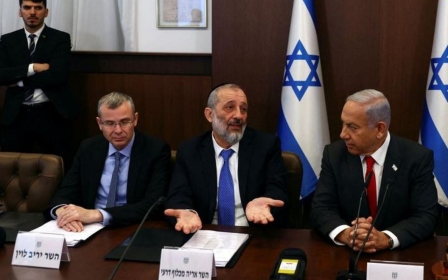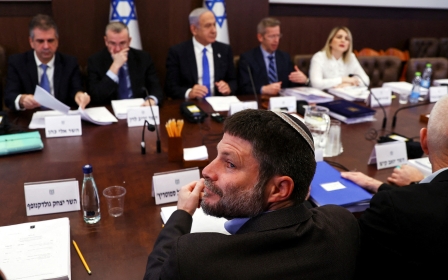Israelis protest against planned judicial overhaul for 11th week
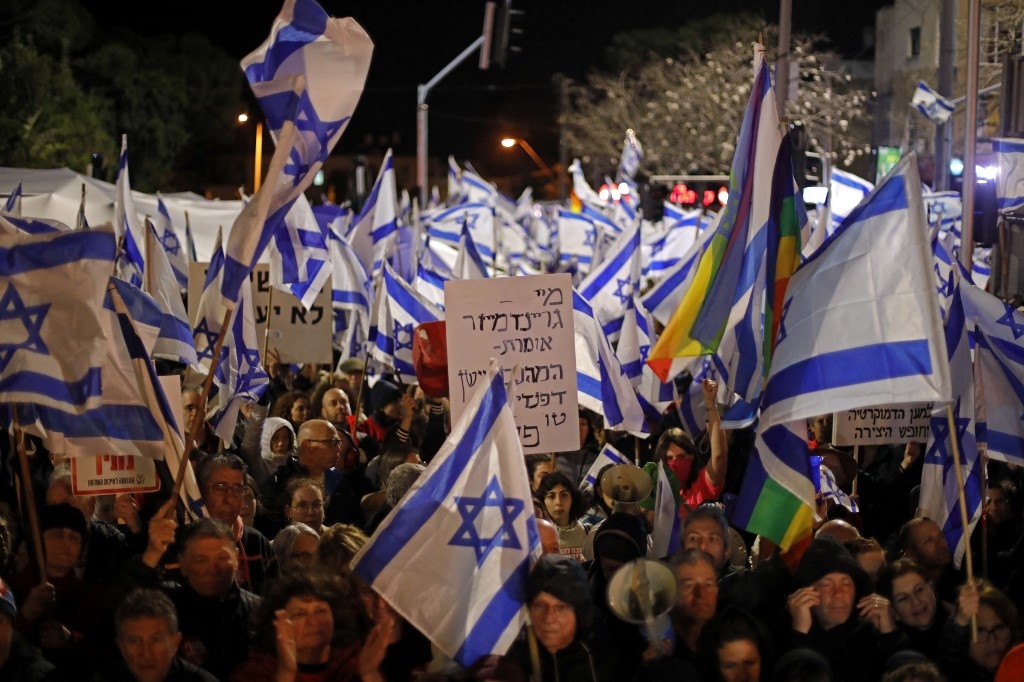
Israelis packed city streets on Saturday in nationwide demonstrations now in their 11th week against plans by the hard-right government to curb the Supreme Court's powers, which critics see as a threat to judicial independence.
The protesters fear that the proposed reforms, which are already moving through parliament and would increase the power of politicians over the courts, are a threat to Israeli democracy itself.
In Tel Aviv's Dizengoff Square, thousands of demonstrators waved the Israeli flag, as well as the rainbow flag of the LGBTQ+ community.
The demonstrators blocked roads as they set off on a march through the heart of the city. "Saving Democracy!" said one placard held aloft by the crowd.
"I'm worried not about myself, but for my daughters and grandchildren," said Naama Mazor, 64, a retiree from the city of Herzliya.
"We want to keep Israel democratic and liberal, Jewish of course, but liberal. We are very concerned it is going to become a dictatorship," she told AFP.
"There isn't a half-democracy. We're either a democracy or a dictatorship. There is nothing in between."
Sagiv Golan, 46, from Tel Aviv, said the government was "trying to destroy civil rights, women's rights, LGBTQ+ rights and everything that democracy stands for… We want to show the voice of democracy."
Israeli media reported demonstrations in more than 100 towns and cities, including Haifa, Jerusalem and Beersheba.
Protests even spread to the occupied West Bank, long considered a political stronghold for Netanyahu's right-wing coalition partners. More than 50 mostly modern-Orthodox Jewish protesters chanted traditional Jewish songs holding blue and white flags at a central junction in the West Bank town of Efrat.
"What they are trying to do is monopolise, to have all the power in their hands," Shmuel Wygoda, a college professor told Reuters in Efrat.
"Once you have all the power in the hands of one side, it is a change, which we know from history, from totalitarian regimes, that all the power is unfortunately used against the people."
Earlier on Saturday, protesters demonstrated at a central village where far-right National Security Minister Itamar Ben-Gvir was spending his weekend.
"Protest against me as much as you want," Ben-Gvir said on Twitter. "I will fight for your right to protest. But why gather outside the windows of the synagogue with loudspeakers, honk, scream and make people violate Shabbat?"
Deepening rift
Since Netanyahu's government announced the reforms in January, days after taking office, massive demonstrations have regularly taken place across Israel.
Opponents of the package have accused Netanyahu, who is on trial on corruption charges, which he denies, of trying to use the reforms to quash possible judgements against him. The prime minister has rejected the accusation.
Expressing concern over the deepening rift in Israeli society, President Isaac Herzog presented a proposed compromise on Wednesday, but the government immediately rejected it.
'Anyone who thinks that a genuine civil war, with human lives, is a line that we could never reach, has no idea what he is talking about'
- Israeli President Isaac Herzog
"Anyone who thinks that a genuine civil war, with human lives, is a line that we could never reach, has no idea what he is talking about," Herzog said.
Leaders of opposition parties said in a joint news conference on Thursday that they supported Herzog's outline.
"The offer is not perfect," said former premier Yair Lapid. "It is not what we wanted, but it is a fair compromise that allows us to live together."
The ruling coalition, which includes ultra-Orthodox Jewish and extreme-right parties, argues the proposed reforms are necessary to correct a power imbalance between elected representatives and Israel's top court.
Immediately after Herzog's announcement, Netanyahu called it a "unilateral compromise", the "key points" of which "only perpetuate the existing situation and do not bring the required balance between the powers".
The reforms would, among other things, allow lawmakers to scrap supreme court rulings with a simple majority vote.
Other proposals would give more weight to the government in the committee that selects judges and would deny the supreme court the right to strike down any amendments to so-called Basic Laws, Israel's quasi-constitution.
Middle East Eye propose une couverture et une analyse indépendantes et incomparables du Moyen-Orient, de l’Afrique du Nord et d’autres régions du monde. Pour en savoir plus sur la reprise de ce contenu et les frais qui s’appliquent, veuillez remplir ce formulaire [en anglais]. Pour en savoir plus sur MEE, cliquez ici [en anglais].


